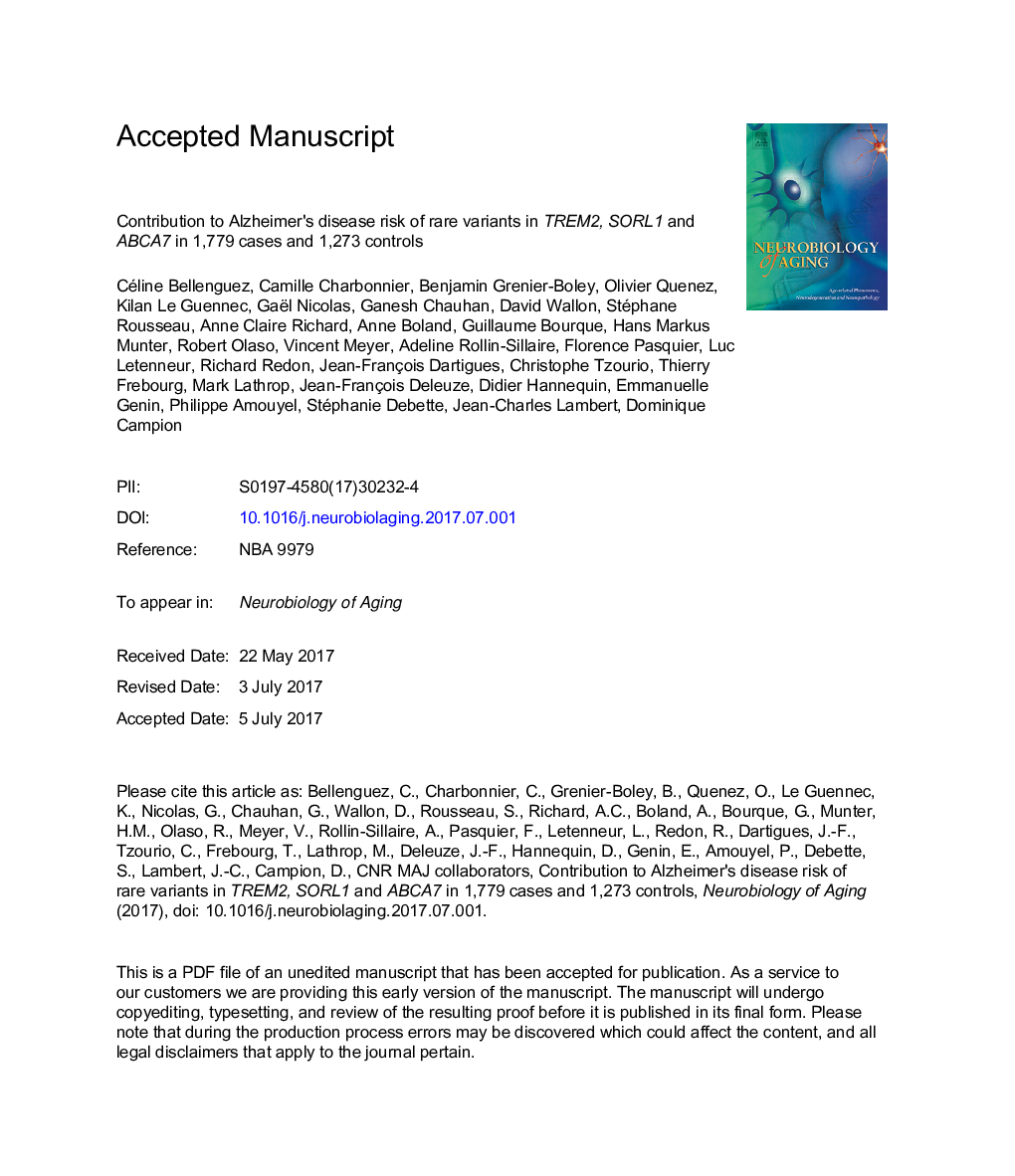| Article ID | Journal | Published Year | Pages | File Type |
|---|---|---|---|---|
| 4932593 | Neurobiology of Aging | 2017 | 28 Pages |
Abstract
We performed whole-exome and whole-genome sequencing in 927 late-onset Alzheimer disease (LOAD) cases, 852 early-onset AD (EOAD) cases, and 1273 controls from France. We assessed the evidence for gene-based association of rare variants with AD in 6 genes for which an association with such variants was previously claimed. When aggregating protein-truncating and missense-predicted damaging variants, we found exome-wide significant association between EOAD risk and rare variants in SORL1, TREM2, and ABCA7. No exome-wide significant signal was obtained in the LOAD sample, and significance of the order of 10â6 was observed in the whole AD group for TREM2. Our study confirms previous gene-level results for TREM2, SORL1, and ABCA7 and provides a clearer insight into the classes of rare variants involved. Despite different effect sizes and varying cumulative minor allele frequencies, the rare protein-truncating and missense-predicted damaging variants in TREM2, SORL1, and ABCA7 contribute similarly to the heritability of EOAD and explain between 1.1% and 1.5% of EOAD heritability each, compared with 9.12% for APOE ε4.
Keywords
Related Topics
Life Sciences
Biochemistry, Genetics and Molecular Biology
Ageing
Authors
Céline Bellenguez, Camille Charbonnier, Benjamin Grenier-Boley, Olivier Quenez, Kilan Le Guennec, Gaël Nicolas, Ganesh Chauhan, David Wallon, Stéphane Rousseau, Anne Claire Richard, Anne Boland, Guillaume Bourque, Hans Markus Munter, Robert Olaso,
